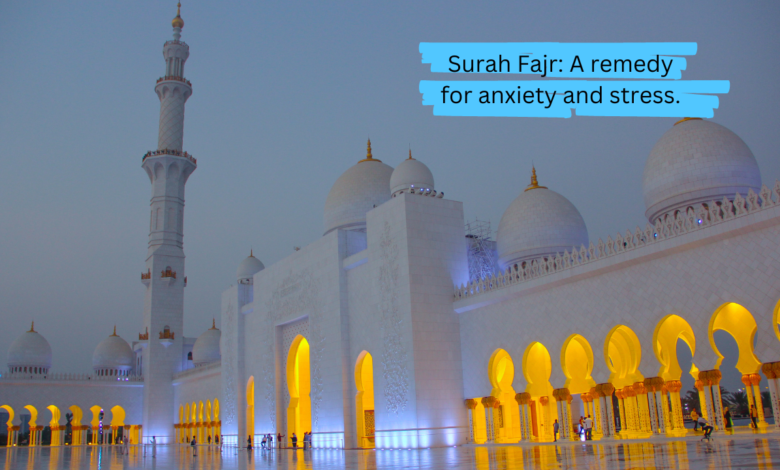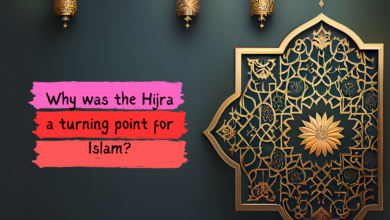Surah Fajr: A remedy for anxiety and stress.

Introduction
Anxiety and stress have become prevalent issues in the fast-paced world we live in today. The constant pressure, uncertainty, and demands of modern life can take a toll on our mental and emotional well-being. People seek various methods to cope with these challenges, from meditation to counseling, but one often overlooked solution lies within the teachings of Islam. Surah Fajr, a chapter from the Quran, holds profound wisdom that offers comfort, hope, and tranquility for those experiencing anxiety and stress. Let us explore the spiritual and psychological benefits of this remarkable Surah.
Understanding Surah Fajr
Surah Fajr, the 89th chapter of the Quran, consists of thirty verses and was revealed in Makkah. The chapter begins with an oath on the dawn, signifying a reminder of Allah’s power and control over all aspects of life. It then moves on to recount the destruction of the people of Thamud, who failed to heed their warnings and faced divine punishment. The chapter concludes with a message of hope and promise of reward for those who do righteous deeds.
Finding Solace in the Verses
Acknowledgment of Divine Control:
One of the primary causes of anxiety and stress is the feeling of helplessness and lack of control. Surah Fajr emphasizes Allah’s supreme authority over all affairs. Understanding that there is a higher power in control of everything can provide a sense of relief and comfort, easing the burden of trying to control everything ourselves.
Lessons from History:
The story of the people of Thamud serves as a reminder that consequences follow the rejection of divine guidance. When faced with overwhelming challenges, reflecting on historical events can put our worries into perspective and remind us of the temporary nature of worldly affairs.
Encouragement for Good Deeds:
The Surah mentions that those who engage in righteous deeds will be rewarded with an excellent and everlasting abode. This assurance motivates believers to focus on positive actions and cultivates hope for a brighter future, reducing feelings of despair and anxiety.
Faith as a Shield:
The Quran itself serves as a protective shield for those who believe and follow its teachings. Reciting Surah Fajr and other verses regularly can create a spiritual barrier against negative emotions, fostering inner peace and strength to face life’s challenges.
Connection with Allah:
Engaging with the Quran through the recitation and understanding of its verses fosters a closer relationship with Allah. This connection brings immense comfort and tranquility, knowing that there is someone who listens, understands, and cares for our well-being.
Applying Surah Fajr in Daily Life
To benefit from the healing power of Surah Fajr, consider incorporating the following practices into your daily routine:
Regular Recitation:
Make a habit of reciting Surah Fajr daily, preferably during the pre-dawn hours, to derive its spiritual blessings and start your day with a positive mindset.
Reflect on Verses:
Take time to ponder over the meaning and messages of the Surah. Internalize its teachings and apply them to your life’s circumstances, seeking strength and guidance from the wisdom it imparts.
Seek Support in Community:
Join Islamic study circles or gatherings where you can discuss the Quran’s teachings, including Surah Fajr. Sharing experiences with like-minded individuals can create a sense of belonging and provide emotional support.
Dua (Supplication):
Incorporate specific prayers and supplications into your daily routine, seeking Allah’s help in times of distress and anxiety.
Conclusion
Surah Fajr serves as a powerful remedy for anxiety and stress by providing spiritual guidance, hope, and a sense of connection with Allah. The verses of the Quran are a source of solace and strength for millions around the world. By integrating the teachings of Surah Fajr into our lives, we can find comfort, ease our worries, and develop a more profound sense of faith and trust in the divine plan.






